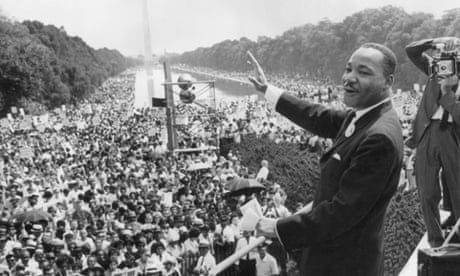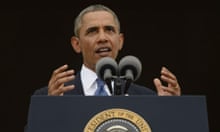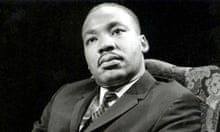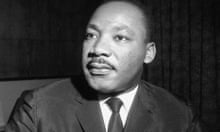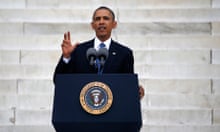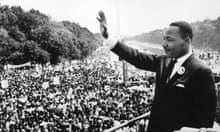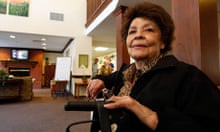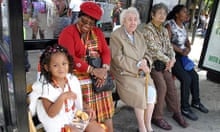I did a slew of radio interviews last week, marking the 50th anniversary of Dr Martin Luther King's "I have a dream" speech. Disorientating in its way because the various stations came down the same phone line one after the other: BBC Leeds, Devon, Scotland, Berkshire, Hereford and Worcester. Still, the conversations were a pleasure.
Inevitably, presenters asked similar things – why was King's speech such a great one? What was it about him? Why do we remember it? And I said three things. There was the rhetoric of it all; a dazzling technical achievement. Then the delivery, reminding me by the end of my mother's out-of-body sermon crescendos as she preached with me in tow from church to Pentecostal church.
And then there was the cleverness of the speech itself. Activists – for racial equality or gender or disability – perennially confront the same brickbats: you've a chip on your shoulder; you're special pleading, you're seeking special consideration. I said King was clever enough to base his pitch on the widely understood requirements of the American constitution. A lot of Americans may not have had much time for black people, but they thought a lot of the constitution. You wrote the rules, said King. You like these rules. These rules apply to us. Stick to the rules.
And usually the presenters asked, what relevance does the King speech have over here? Well, we can eat lunch where we like, I said. Generally the police don't set dogs on us. In many ways life is good. But when you become a member of a first-world free society – with or without a written constitution – you do have expectations that the rights of one group will also pertain to the other. And that's when you consider our anomalies such as stop and search, with black people seven times more likely to be stopped than white, with only 9% of stops leading to arrest. And the so-called war on drugs, where arrested black people are twice as likely to be charged as white. And the employment market, where half of the young black people and 31% of young Asian people are unemployed compared with 20% of their young white counterparts.
Wasn't that, in essence, what King was saying? Shouldn't benefits, freedoms and opportunity impact citizens the same?
